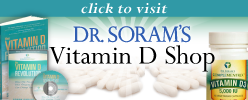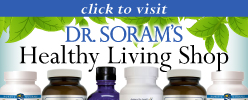Take a break for a few minutes from whatever you were doing before reading this article. Clear your mind of errands to run, projects to complete, racing thoughts of all kinds. And think for a moment about your life and these two words:
- Certainty
- Uncertainty
These two premises, one being an outcome that is without doubt, the other a circumstance that nobody can predict or guarantee, are capable of explaining your whole life … and why it’s not exactly how you wish it were right now.
When we have great “certainty” there is an urge for most of us to seek “uncertainty.” For instance, some people when surrounded by great certainty — such as while in a steady, secure job or in a committed long-term relationship — say they are bored or are not feeling alive. They feel they’re not using their talents to the maximum, not feeling that excitement in their marriage, not feeling like they’re living the life they always imagined.
Yet, when we have great uncertainty in our lives, as many now do during these financial times, we seek greater certainty. Suddenly a steady marriage feels supportive and necessary, a secure job a blessing.



.aspx?width=167&height=250)




 Most trips to the beach are pleasantly uneventful with visitors taking in the sun, sand and surf, and maybe searching for a seashell or two. Assuming you know how to swim, choose a day when the weather is good and the water is calm, and don’t stay out in the sun for too long, the beach hardly looks like a place full of potential hazards … but in this case looks can be deceiving.
Most trips to the beach are pleasantly uneventful with visitors taking in the sun, sand and surf, and maybe searching for a seashell or two. Assuming you know how to swim, choose a day when the weather is good and the water is calm, and don’t stay out in the sun for too long, the beach hardly looks like a place full of potential hazards … but in this case looks can be deceiving.
 Most of us are all too well aware that overeating, eating junk food and not exercising are sure to expand our belt buckles another notch. But weight gain is not always so cut and dry. Oftentimes you may carefully watch what you eat, load your plate full of fruits and veggies, even exercise regularly … and still not win the battle of the bulge.
Most of us are all too well aware that overeating, eating junk food and not exercising are sure to expand our belt buckles another notch. But weight gain is not always so cut and dry. Oftentimes you may carefully watch what you eat, load your plate full of fruits and veggies, even exercise regularly … and still not win the battle of the bulge. Like a taunting teenager, a nosy mother-in-law or a meddling neighbor, food messes with our emotions. A bowl of ice cream can make you happy. An entire carton of ice cream can make you sad. Just the smell of a home-cooked meal when you can’t have one can make you lonesome and a bowl of chicken noodle soup can make you feel better.
Like a taunting teenager, a nosy mother-in-law or a meddling neighbor, food messes with our emotions. A bowl of ice cream can make you happy. An entire carton of ice cream can make you sad. Just the smell of a home-cooked meal when you can’t have one can make you lonesome and a bowl of chicken noodle soup can make you feel better.


